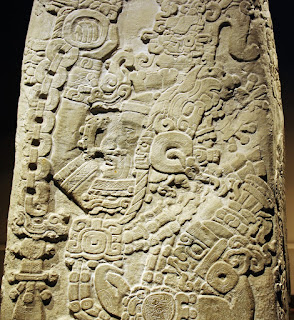Cultural Anthropology: Cultural anthropology focuses on the study of human cultures, including customs, beliefs, rituals, social structures, and behaviors. Cultural anthropologists often conduct ethnographic research to immerse themselves in a community and understand their way of life.
Archaeology: Archaeology involves the study of past human societies through the analysis of artifacts, remains, and structures left behind by ancient civilizations. Archaeologists uncover and interpret evidence to reconstruct the history and lifeways of past cultures.
Biological Anthropology: Biological anthropology, also known as physical anthropology, explores human biological evolution, genetics, and variations. It examines skeletal remains, DNA analysis, and comparative studies to understand human origins and the biological diversity of human populations.
Linguistic Anthropology: Linguistic anthropology studies human languages, their structure, evolution, and cultural context. Linguistic anthropologists analyze language use in societies, language acquisition, and how languages influence culture and social interactions.
Anthropological Linguistics: This subfield specifically focuses on the relationship between language and culture and how language shapes cultural concepts and beliefs.
Medical Anthropology: Medical anthropology examines the intersection of culture, health, and illness. It explores how cultural beliefs, practices, and social factors influence health outcomes and medical practices.
Economic Anthropology: Economic anthropology studies the economic systems and practices of different cultures, including production, exchange, distribution, and consumption of goods and services.
Psychological Anthropology: This subfield investigates the psychological aspects of human behavior and how culture shapes cognition, emotions, and mental processes.
Urban Anthropology: Urban anthropology focuses on the study of cities and urban environments, including urbanization, migration, and the impact of urban spaces on culture and society.
Applied Anthropology: Applied anthropology applies anthropological knowledge and methods to address real-world problems and provide insights for policy-making, development projects, and community interventions.
Anthropologists use diverse research methods, including participant observation, interviews, surveys, archival research, and laboratory analysis, to gather data and gain insights into the complexity and diversity of human societies and cultures across time and space.
Visual Anthropology: Visual anthropology uses photography, film, and other visual media as research tools to document and study cultural practices, rituals, and everyday life.
Ethnoarchaeology: Ethnoarchaeologists study modern-day societies and their material culture to gain insights into the archaeological record and the interpretation of ancient artifacts.
Ethnobiology: Ethnobiology examines the relationships between humans and their environment, including traditional knowledge of plants, animals, and ecological systems.
Anthropology of Religion: This subfield explores religious beliefs, practices, and rituals across different cultures and how religion shapes social structures and behaviors.
Gender and Sexuality Studies: Anthropologists examine gender roles, sexual identity, and the cultural construction of gender and sexuality.
Political Anthropology: Political anthropology studies the organization and distribution of power, authority, and governance in different societies.
Anthropology of Development: This subfield investigates the impact of development projects and policies on local communities and their cultures.
Digital Anthropology: Digital anthropology explores the impact of digital technologies on culture, communication, and social interactions.
Psychological Anthropology: This field examines cultural variations in human cognition, emotion, and psychological processes.
Anthropology of Education: Anthropologists study educational systems, learning processes, and the transmission of knowledge in different cultural contexts.
Migration and Transnationalism: Anthropologists explore the movement of people, diasporas, and the formation of transnational communities and identities.
Environmental Anthropology: This subfield examines human-environment interactions, environmental perceptions, and sustainability in various societies.
Anthropology of Food: This area explores food production, consumption, and cultural meanings associated with food practices.
Anthropology of Art: Anthropologists study the role of art, aesthetics, and visual expressions in cultural contexts.
Indigenous Studies: Anthropologists work with Indigenous communities, studying their histories, cultural practices, and contemporary challenges.
Anthropology is a dynamic discipline that continues to evolve and adapt to address current and emerging issues related to human societies, cultures, and their interactions with the environment.
Visit Our Award Nomination: https://x-i.me/GGwW
Facebook : https://www.facebook.com/kaylee.rowan.92
Twitter : https://twitter.com/ScienceInventi1
Pinterest : https://in.pinterest.com/scienceinventions/.....
Blog : https://newscienceinventions2020.blogspot.com/
Tumblr : https://kayleerowan.tumblr.com.....
Linkedin : https://www.linkedin.com/feed/...
#Anthropology #CulturalAnthropology #Archaeology #BiologicalAnthropology #LinguisticAnthropology #AnthropologicalLinguistics #MedicalAnthropology #EconomicAnthropology #PsychologicalAnthropology #UrbanAnthropology #AppliedAnthropology #VisualAnthropology #Ethnoarchaeology #Ethnobiology #AnthropologyOfReligion #GenderStudies #PoliticalAnthropology #AnthropologyOfDevelopment #DigitalAnthropology #MigrationStudies #EnvironmentalAnthropology #AnthropologyOfFood #AnthropologyOfArt #IndigenousStudies



No comments:
Post a Comment